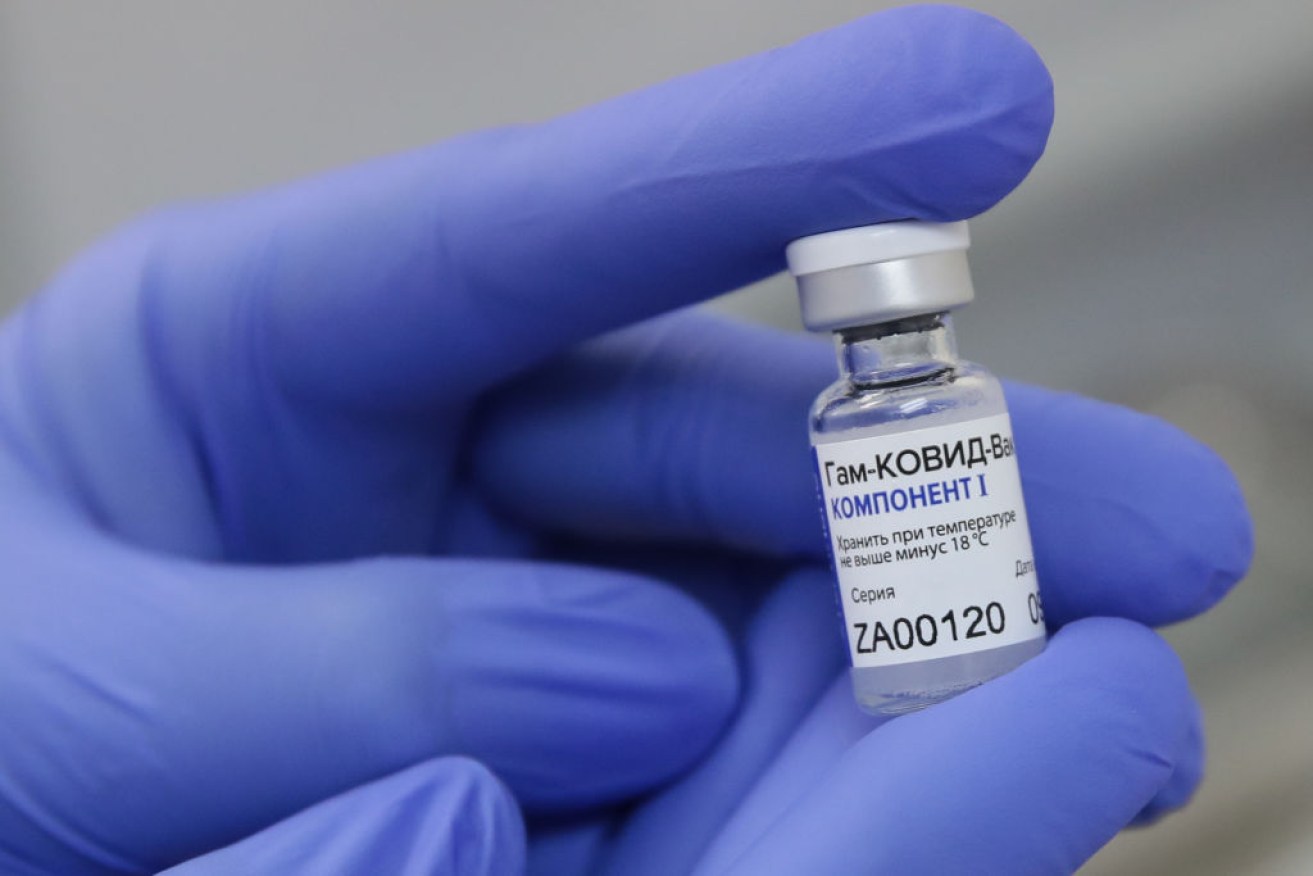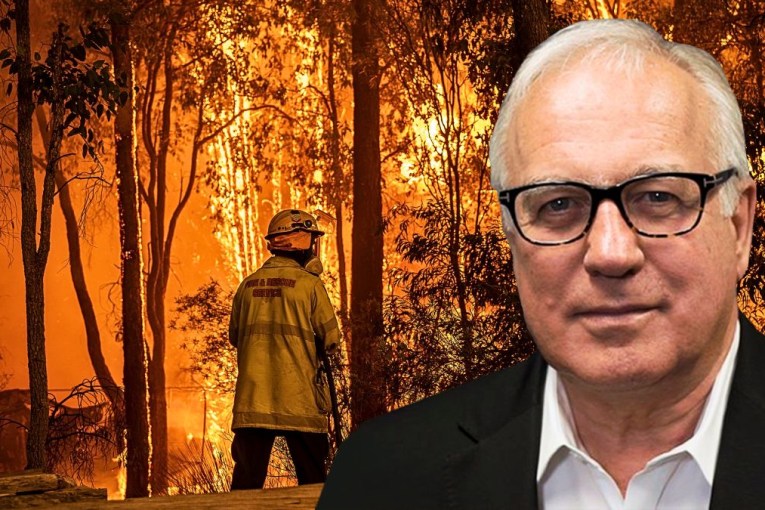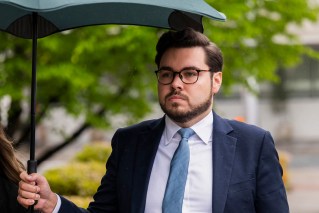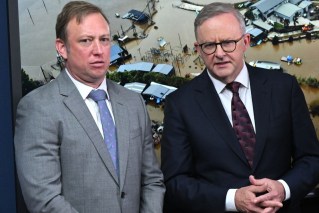Aussie surgeon tells: This is why I got the COVID-19 vaccine

There have been six Australian deaths linked to the AstraZeneca shot, from more than six million doses administered. Photo: Getty
I was vaccinated yesterday.
I am fortunate that the hospital I work at has an allotment of a vaccine. It is one of the few places in the state that can hold the Pfizer vaccine at the super-low temperatures required.
I am also ‘fortunate’ to be on call over Christmas, so my potential exposure to unscreened patients makes me eligible to be one of the first to receive it, although it is a voluntary process here.
Speaking to friends, both here in America, and back home in Australia – there is some concern over the vaccines.
Concern about their effectiveness, the rapidness of the rollout, and potential unknown side effects.

Lucas Annabell, an Australian working in the US, gets his first dose of the coronavirus vaccine.
It would be easy to dismiss this apprehension as part of the anti-vaccination movement. But that would be a hasty conclusion.
There are genuine concerns – even from medical professionals – that have not all been addressed yet, and so they cannot be dismissed.
We cannot label these fears as part of the ‘anti-vaxx’ movement, whose advocates unfortunately live on an Earth that is flat.
This is my second lockdown this year.
I left Australia in September, two weeks before Melbourne finally reopened.
It has been with both relief, but not a small amount of jealousy, to hear the joy among my friends and family at home at being able to reunite, to celebrate Christmas, or even to just have a beer at the pub standing up.
Here it is a completely different story. The fear of catching the virus, the trepidation in public spaces, and the shutdown of the community are all unfortunately justified.
The parallels drawn of being at war are not without reason. I can see the front line now – and I am not sure America is winning.
Boston has some of the best hospitals in this country, and a relatively high proportion of hospitals beds to people.
Across the rest of the country, however, it is much worse.
In some states, the situation can only be described as dire. Hospital beds in car parks, an NBA player losing seven family members, and an unmatched demand for coffins, paint just some of the bleak picture facing this nation.

Minnesota Timberwolves basketballer Karl-Anthony Towns has lost seven family members to COVID-19. Photo: Getty
Australia, on the other hand, truly is the lucky country – our island borders will be the best weapon to combat the influx of disease. Hopefully we can stop each ebb and swell as it comes.
It is naive to think we will always have perfect control.
This is an unseen, unknown, highly contagious disease that is still mutating, and potentially becoming more virulent, and has washed over the world in a storm of ferocity unseen for generations.
At home we must still be vigilant.
When it finally comes time to receive shipments of a vaccine, hopefully there will be more information about them.
The trials have been large, and the short-term side effects are now well known. We know they are effective at preventing infection, but not perfect; they are however very successful at reducing the severity of infection.
Long-term side effects and efficacy are still somewhat unknown, which may be the primary concern to those with reasonable doubt. The cold hard facts are that the vaccines have been relatively fast tracked, and some are a new type of vaccine. This is undeniable.
The virus brings its own long-term side effects – loss of taste and smell, pulmonary fibrosis, memory loss, and chronic fatigue.
In a very simplified point of view, what we do not know of the vaccines is somewhat equal to what we do not know of the virus. Both entities are relatively new.

Healthcare workers in the US are following up discharged patients at home, with rapid testing to make sure they’re fully recovered. Photo: Getty
The vaccines, however, are based on research, and its speed of development is due to our current favourite word – pivoting – from other established research trials. It is not truly new then, just newly implemented.
The virus itself is a rapidly evolving disease, more contagious than humanity can currently deal with, born in the shadows, and the final effect on our bodies may not be known for years to come.
For me, the decision is easy.
This disease is far too present and prevalent in this country. Elective surgery cases, even at the paediatric hospital I work at, are being cancelled daily as both children or parents are being picked up on screening as positive.
And the mortality rate is real.
America, with a much larger population and a different health care system, has now ticked over 300,000 deaths, more than the entire population of Hobart and Launceston combined.
Perhaps more emotively for Americans, on December 16 the day’s death toll was higher than that of 9/11.

Coronavirus hospitalisations are surging in the US. Photo: Getty
In three weeks, I will receive my booster shot. Two weeks after that, I will be considered to be protected from a severe infection of COVID 19.
I will still be vigilant with mask wear and social distancing, to not only prevent acting as a possible asymptomatic carrier, but also to set an example for those patients around me. I will also continue to advocate for vaccination.
When I can eventually come back home, I will willingly sit through my two weeks of quarantine. It is a luxury that Australia can control its borders better than most.
Back home it can be hard at times to understand the severity of this virus. But we cannot equate disdain for lockdown measures into casual negligence of the virus at hand.
In five weeks then, when I walk to work through the snow, I will have some peace of mind for myself, and I will breathe the cold air a little easier even through my mask.
By then I might be mind controlled by Bill Gates, or perhaps a 5G antenna will emerge from my skull, or I will develop Dr Strange-like superpowers.
But at least I will be protected from severe infection, and the host of potential health problems, in exchange for the mild inconvenience of two jabs in the arm.
Truly, though, I just hope to be a small piece of the puzzle, a tiny cog in a machine that can maybe slow down this giant wave overcoming America, and the world.
I hope Australia can choose to do the same, when our time comes.
Lucas Annabell is an Australian paediatric orthopaedic surgeon currently on fellowship in Boston, Massachusetts, US








